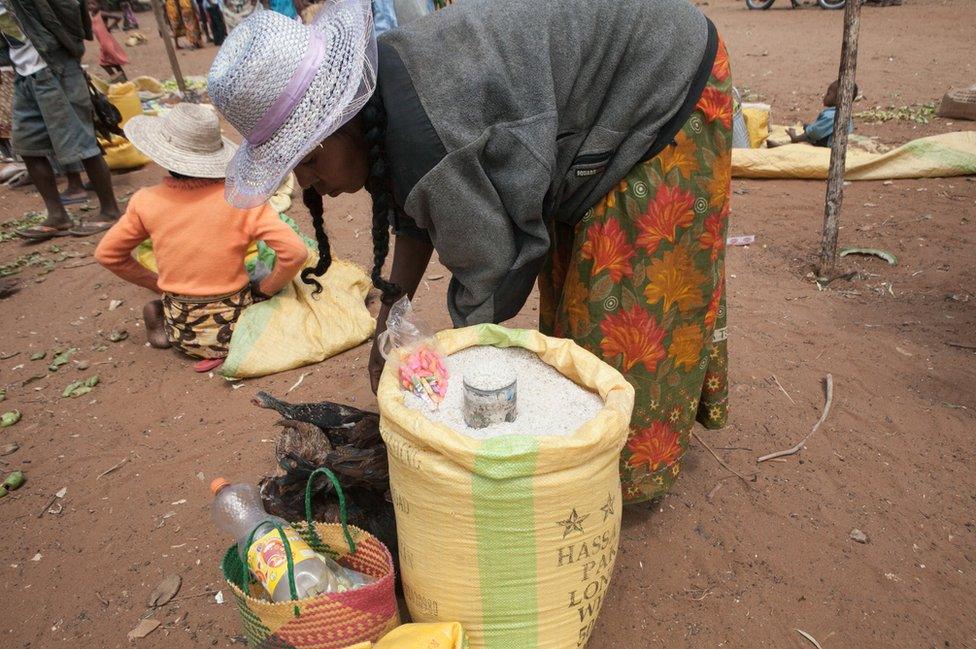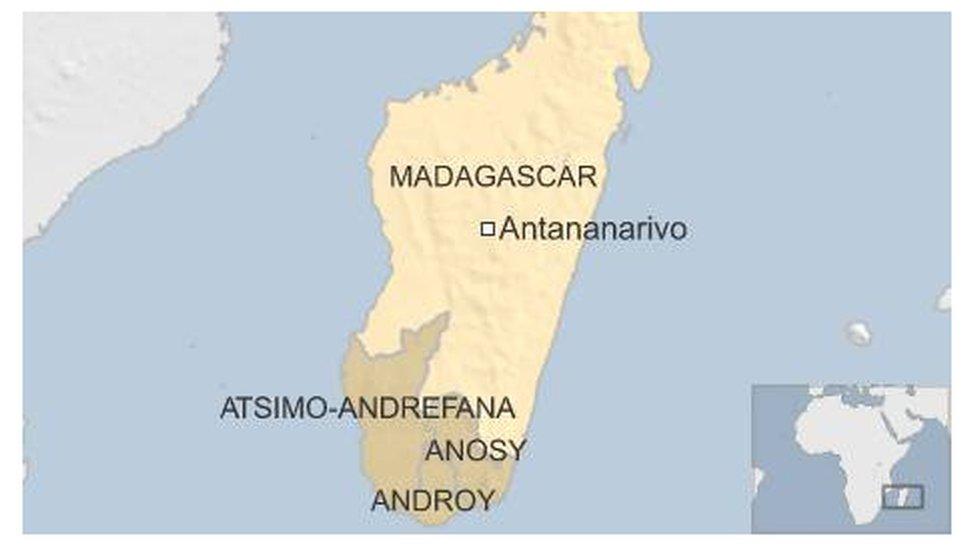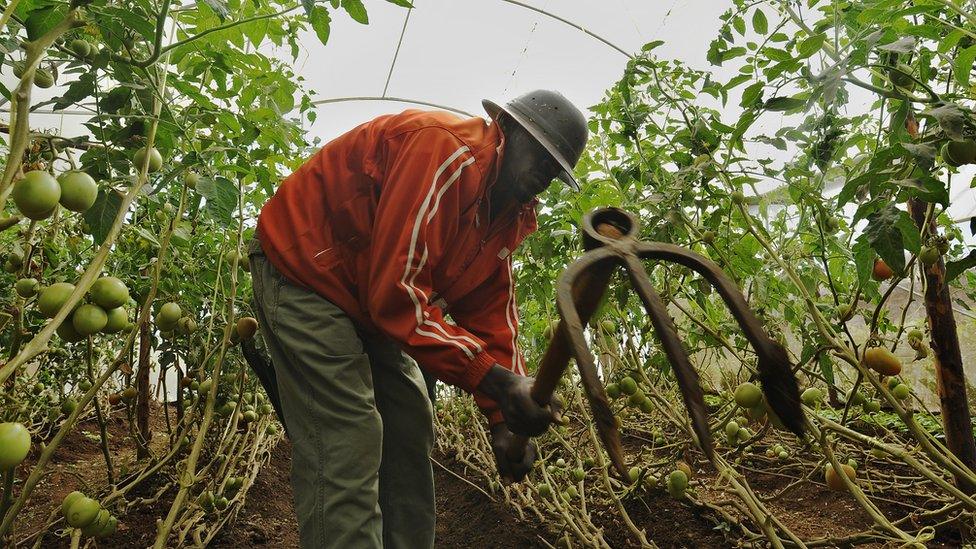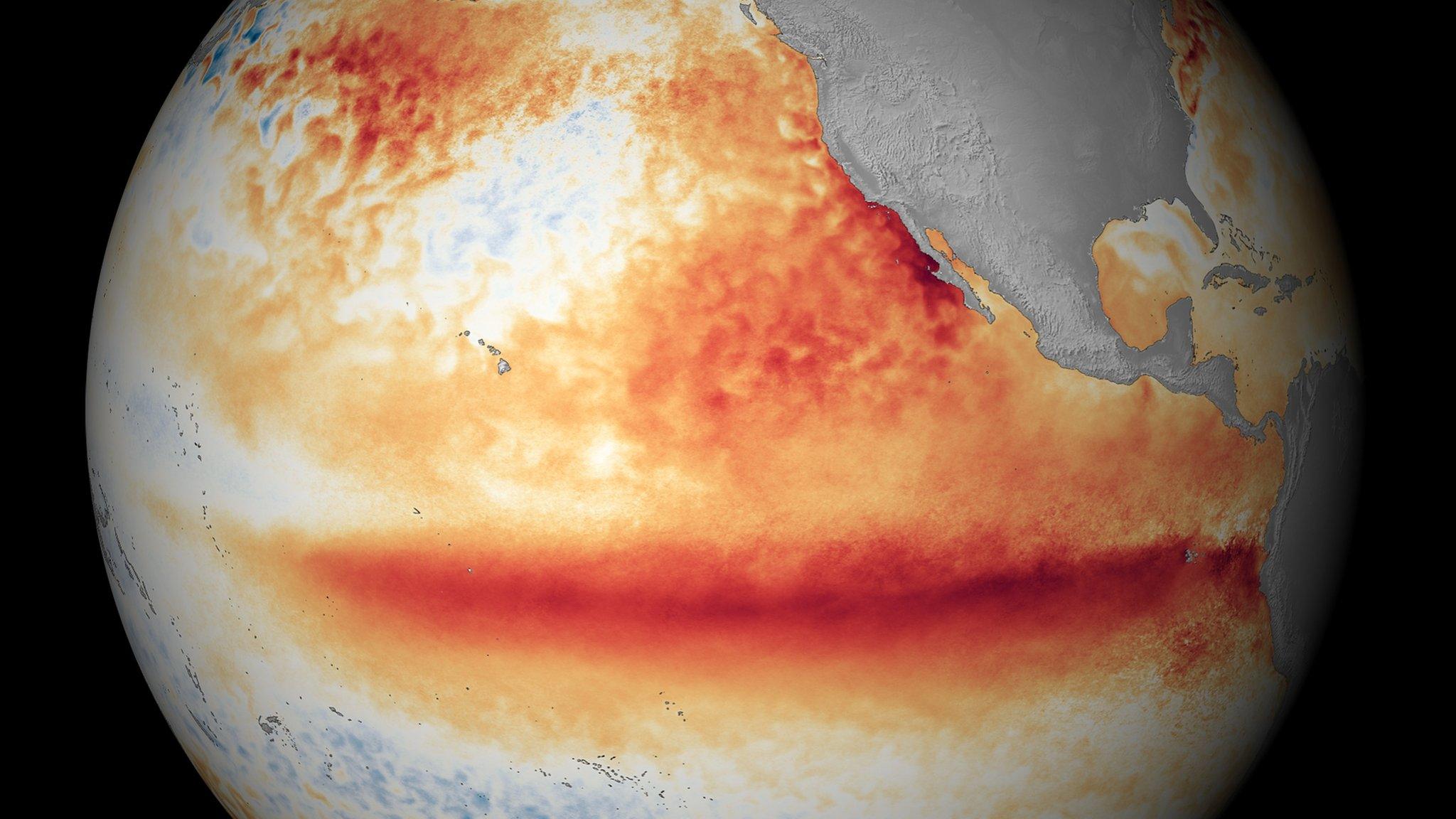Madagascar: 1.5m face hunger because of drought, UN says
- Published

Rice production has dropped up to 60% in some regions, with people forced to turn to imports
Some 1.5 million people in southern Madagascar are facing hunger because of a severe drought, the UN says.
Production of staple foods has declined sharply, resulting in higher food prices. Residents are said to be eating seeds and selling animals to cope.
More than half of those affected are acutely food insecure, the UN adds, meaning that they need urgent humanitarian assistance.
The situation has been made worse by the El Nino weather phenomenon.
The lack of sufficient rains in the southern region of Androy alone resulted in an 80% decline in maize production this year compared with the already reduced levels of 2015, the UN's Food and Agriculture Organisation (FAO) said in a report, external.
The drought also affected the production of another staple food, cassava, in Androy and also in Atsimo-Andrefana, where production dropped by approximately half, the agency added.
The situation was also critical in Anosy region.

"Households are reducing consumption of locally produced crops," the report said.
"[People are] adopting survival strategies such as consuming seeds, selling their animals and agricultural tools and increasing their consumption of nutritionally inadequate wild foods, such as red cactus fruits."
Across the country, rice production was also affected, the agency said, with declines of up to 60% in some regions.
Working with the World Food Programme, the FAO said it would help residents and small farms in the worst-affected districts with food, seeds and farm tools, so they could take advantage of the planting season, which starts in November.
Other African nations have also suffered from severe droughts recently, made worse by the El Nino phenomenon.
El Nino is a naturally occurring weather episode that sees the warm waters of the central Pacific expand eastwards towards North and South America, causing unusually high temperatures.
- Published9 April 2016

- Published10 January 2016
- Published30 December 2015
